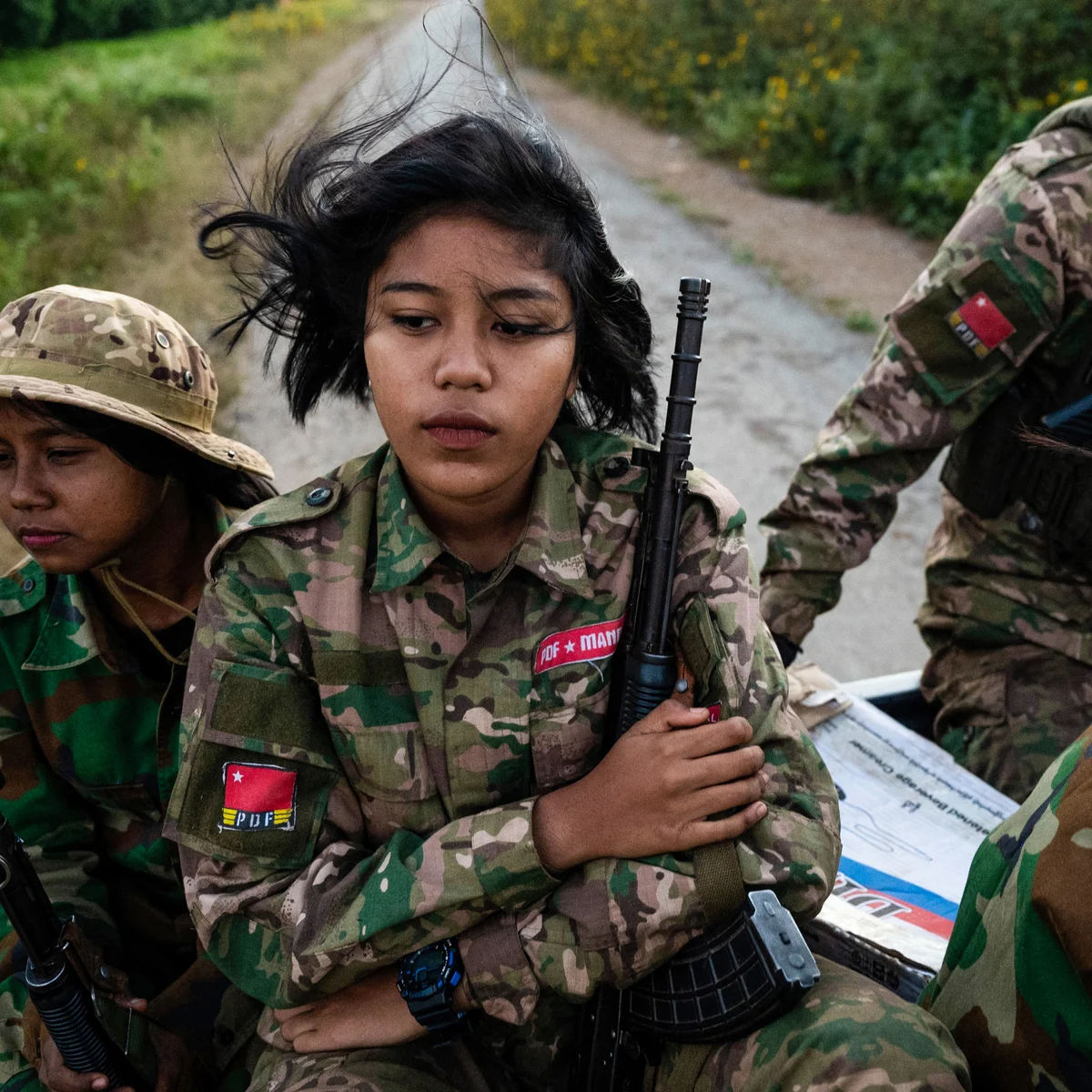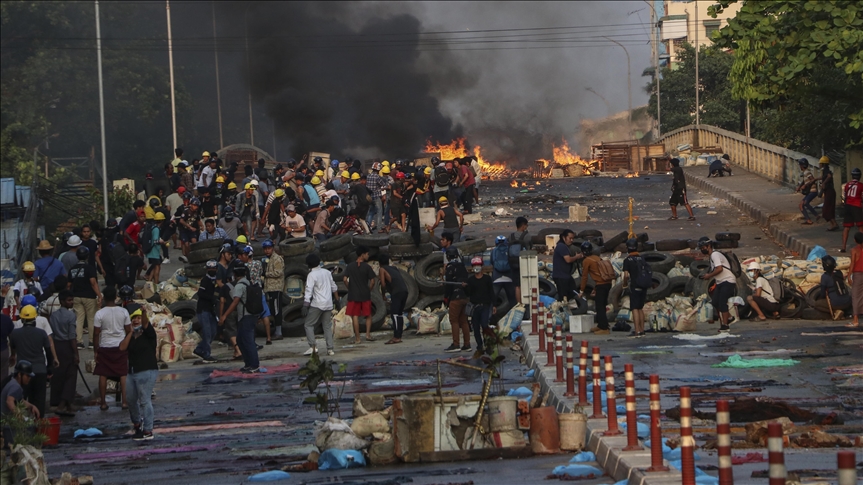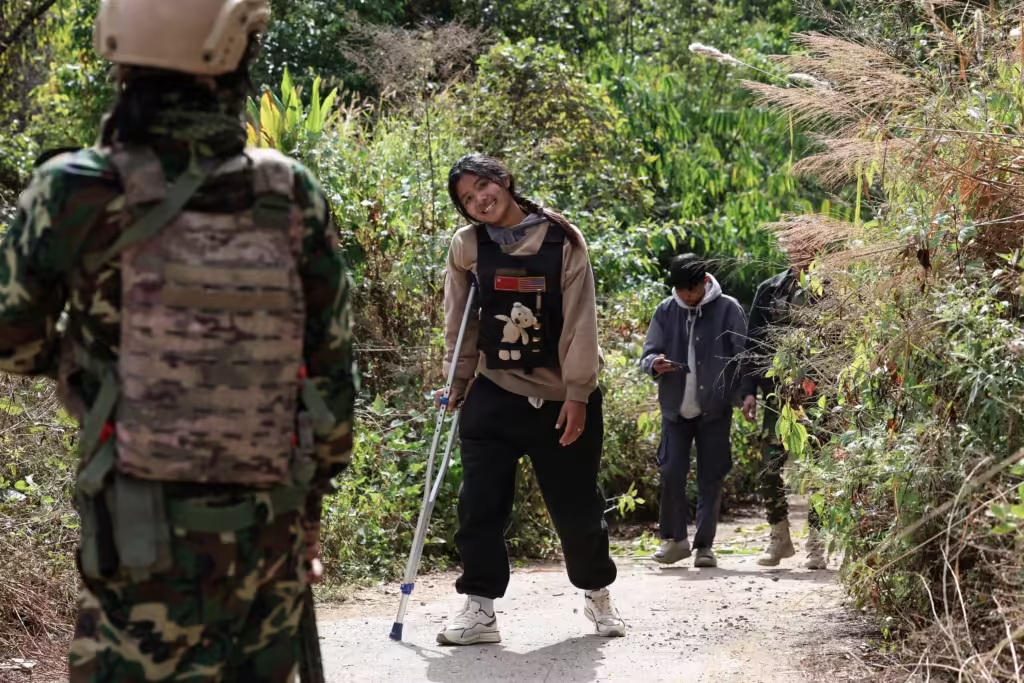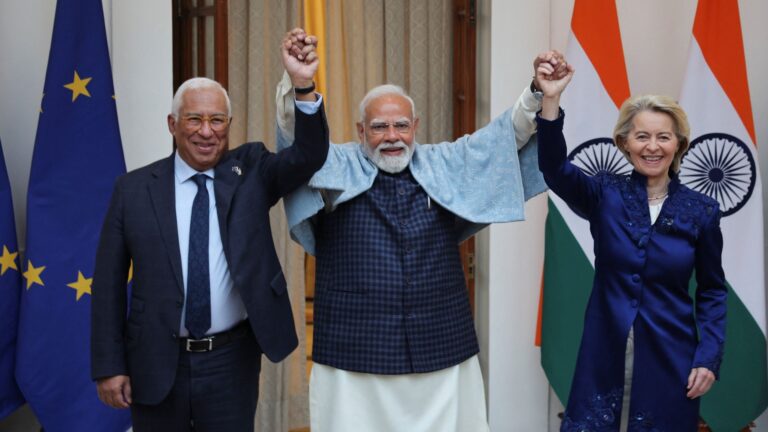
Since Myanmar’s 2021 military coup, children as young as 12 years old have been forcibly conscripted into the military or pressured to join resistance forces. In 2024, the UN verified a total of 2,138 grave violations against children, including but not limited to child soldier recruitment. These children are often used as fighters, porters, or even human shields, denied education, and forced into war zones under threat or desperation. Recruitment of children now accounts for over 40% of all grave child rights violations in Myanmar, alongside killings, maiming, and abductions.

Why Are Children Being Recruited?
Myanmar’s military junta is facing major troop shortages. Losses on the battlefield and strong public resistance have left the army struggling to maintain control. To fill the gap, the junta has turned to desperate, and illegal measures:
-
Enforced conscription: The regime activated a law requiring all men (18–35) and women (18–27) to serve for at least two years.
-
Falsifying documents: Military recruiters have forged IDs and birth certificates to enlist underage boys.
-
Using fear tactics: Troops have abducted youth or threatened families to force young people into service.
-
Exploiting wealth gaps: A black market has emerged, where rich families pay bribes for military “substitutes” to avoid sending their children to war.
These practices take root in a broader crisis. Poverty, displacement, and natural disasters have made life in many areas nearly unlivable. As a result, children from these zones are left with few choices,fight, flee, or risk dying in silence.
Who’s Funding the Myanmar Military and Why It Matters
Despite international sanctions, the junta still has access to substantial funding. Its key sources of income include:
-
Weapons deals with China and Russia
-
Profits from military-run businesses, such as MEC (Myanmar Economic Corporation) and MEHL (Myanma Economic Holdings Limited)
-
Corporate taxes from alcohol, telecom, and energy sectors
-
Black market sales and strict foreign exchange controls
These revenues not only sustain military operations but also enable the continued recruitment of child soldiers. When businesses trade with or invest in junta-linked companies, they may unknowingly support the abuse of minors. Meanwhile, alcohol and luxury goods continue to flow into military compounds, enriching elites and prolonging the war economy.
Resistance or Recruitment?

Not all child fighters are forcibly conscripted; some, like Anina, a 17-year-old sniper in the Chin National Defense Force, join out of desperation or ideology. Anina enlisted voluntarily at 14, after witnessing the military gun down peaceful protestors. While her choice seems autonomous, in conflict zones where escape is impossible and education is collapsing,“choice” becomes a privilege. Her story underscores how even resistance groups, though opposing tyranny, also absorb underage fighters.
Global Condemnation and Sanctions
The international community has responded with sharp words and some concrete steps. Countries including the US, UK, EU, Canada, and Australia have imposed sanctions on Myanmar’s military leaders and related businesses. These measures freeze assets, restrict travel, and ban the sale of arms and jet fuel.
Additionally, global institutions have spoken out:
-
The UN, ASEAN, G7, and EU have publicly condemned the junta and called for democratic reform.
-
The International Labour Organization (ILO) has taken legal steps against Myanmar for forced labor.
-
Human rights groups are urging international courts to hold the junta accountable for war crimes.
Diplomatically, Myanmar’s generals have been increasingly isolated. Many have been excluded from major summits and negotiations.
The World’s Role: Action or Apathy?
Despite strong words, enforcement of these sanctions has been inconsistent. China and Russia still support the junta through trade and arms. ASEAN’s response has remained cautious, divided by internal politics.
Meanwhile, humanitarian aid struggles to reach the people who need it most. Military checkpoints and violence block supplies, leaving nearly 20 million people in urgent need. Still, donors like the EU, US, and Japan continue to support civilians through UN agencies and NGOs, especially after the 2025 earthquake that deepened the crisis.
But the question remains: how long can the world watch while childhoods are traded for rifles?
For more such informative articles, check out The World Times.



